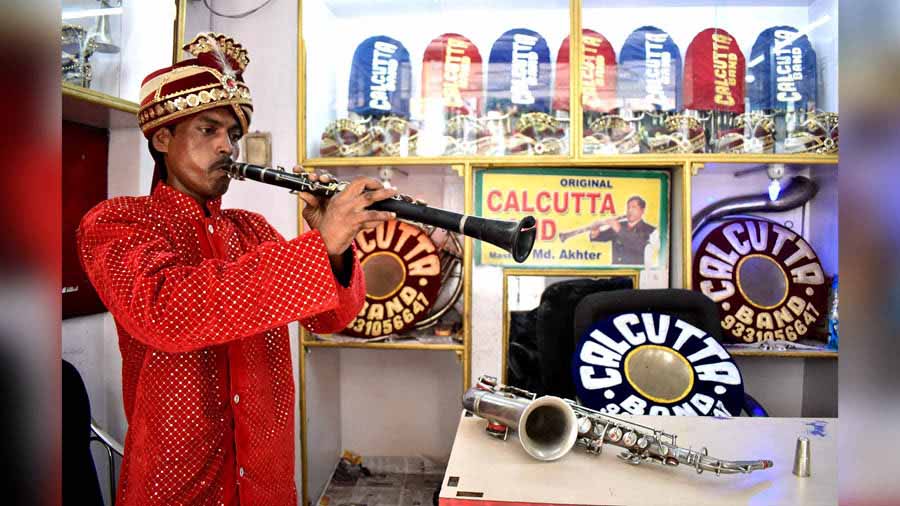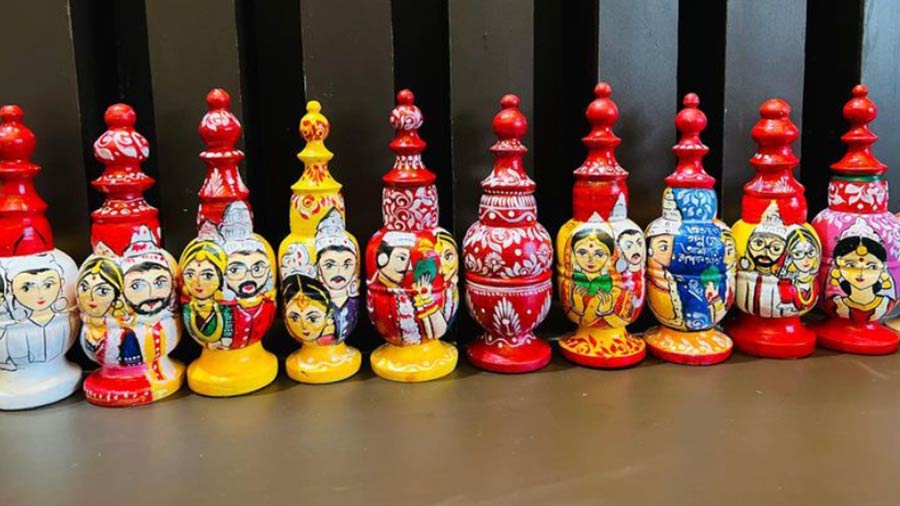For the last few months, Washir Khan has had reason to be happy. Like other proprietors, Khan, too, runs his wedding band business from a shop on MG Road. Wearing their bright red uniforms, musicians are often seen walking around with their shiny brass instruments here. This past Wednesday, we found Khan sitting on a wooden stool, searching for an appropriate Hindi song on his radio. “Unlike 60s and 70s Bollywood music, modern songs are lifeless, but people want to hear something new. We’ll be fixing things in our rehearsals.”
Several wedding bands in the city are presently finessing their routine. With 26 auspicious dates dotting the months of May and June, these bands are all suddenly in high demand. Having suffered greatly during the pandemic, Khan and his counterparts are now enjoying the perks of a quiet resurrection. From having very little business, they are today overbooked.
All that once glittered
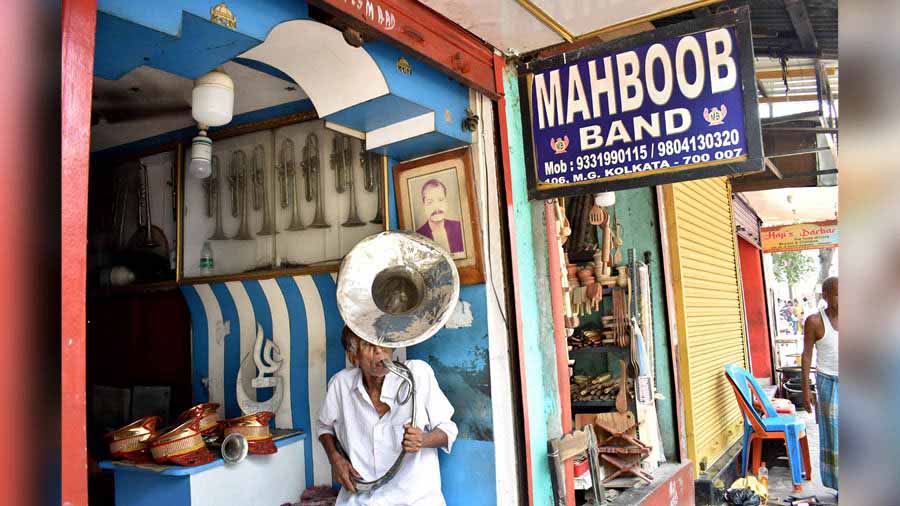
Many of Kolkata’s bands have been in the city since pre-Independence times and were hired by British officers for special occasions
Many of Kolkata’s wedding bands have long histories. They have been around since before Independence, and several owners have passed down their know-how to future generations. The British would first hire these bands for special occasions, but this trend was continued by middle- and upper-middle-class families in Kolkata. Over time, band-wallahs have come to play an integral role in both Bengali weddings and Durga Puja immersions.
Wedding bands once flourished in the city and the state, but in the early 1990s, the CPI(M) government cancelled their road permit. Vinod Shah, a band owner, says, “They told us that we were causing traffic jams in the city.” Even though the Trinamool Congress later lifted this ban, Shah laments that the golden era of wedding bands is over: “We would get a lot of work during the wedding season and Pujas, but things changed. Covid was the worst phase.”
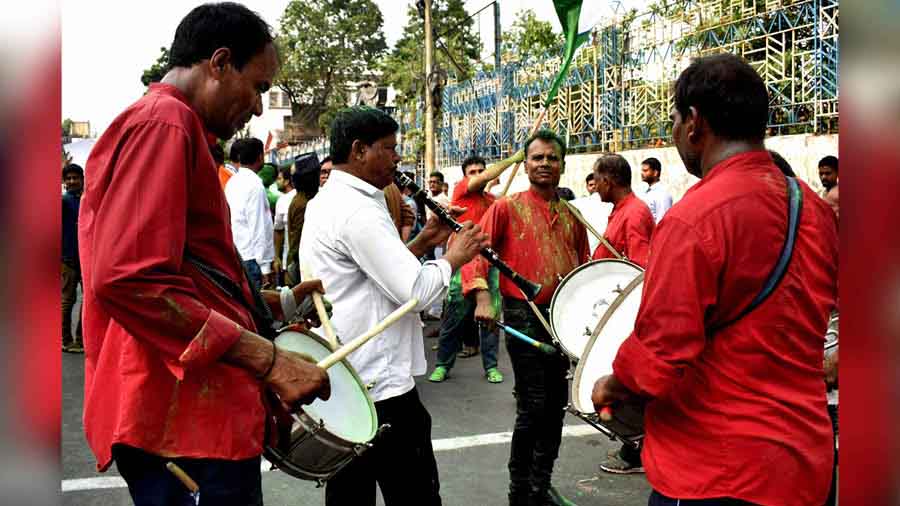
Band members often lament that the golden era of wedding bands — sometime before the ban in the early 1990s — is no more, despite the ban being lifted later
When DJs began replacing wedding bands in the 1990s, troops that would once have 100 members soon started to make do with only 25 or 30 musicians. Md Fiaz, co-owner of a wedding band, told My Kolkata that there was a time when his band would be employed for over three weeks in a month. “We would earn somewhere between Rs 5,000 and Rs 21,000 for these jobs, but during the lockdown, we were completely unemployed.” Covid forced these bands to adapt. Not only did they learn the importance of hygiene and physical distance, they also expanded their repertoire. Modern Bollywood music is now a key part of their routine.
Band, Baaja, Baaraat
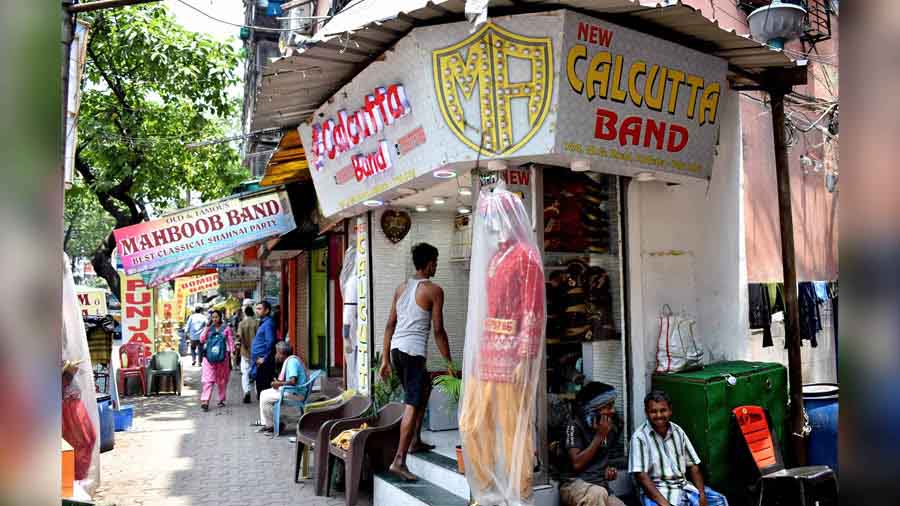
The lockdowns and the pandemic forced bands to adapt with members doing other jobs
During the lockdown, most band members started doing odd jobs to make ends meet. Some sold fruits in Kolkata, while others returned to their hometowns in Uttar Pradesh and Bihar. It was only in 2021, when work once again became a possibility, that these bands felt a new hope. Demand returned to normal in the winter of 2022. Dona Chanda Arora, a wedding planner, says, “Most of our clients ask for traditional bands. Though DJs are hired for after-parties, the baaraat requires music one can dance to, and bands also help one make a dramatic entry.”
Despite Kolkata’s hot climate, wedding bands are witnessing a revival. “But morning weddings remain problematic,” says Khan. “Even though most people prefer taking their baraats out in the evening, it is hard to play in the sun.” Along with their instruments, band members are also expected to carry flags, umbrellas and lights. Their shoulders, however, are used to these burdens. The music is clearly never over for wedding bands. They know the value of encores.
